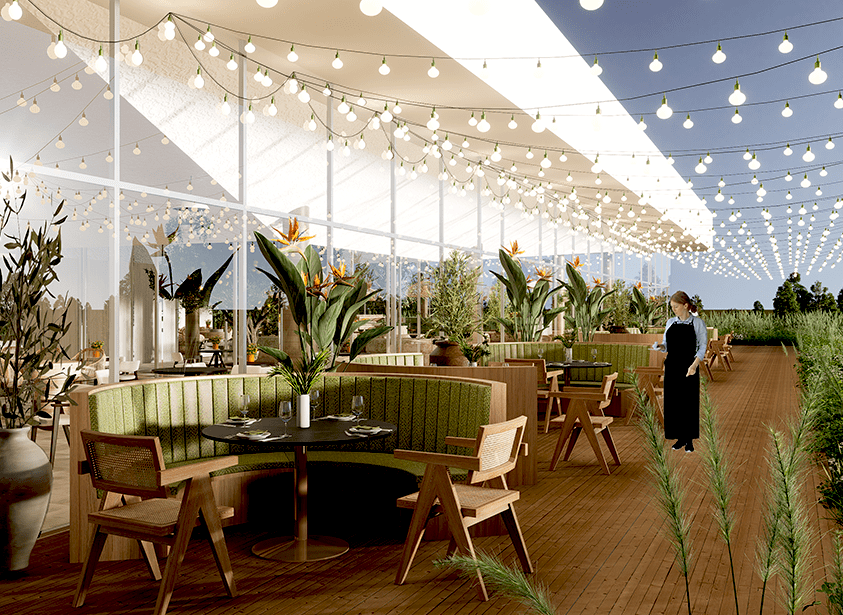Michele De Lucchi: 7 tips to be a disruptive designer

Michele De Lucchi (Ferrara, 8 november 1951) is an eclectic Italian architect and designer. Discover what makes a designer disruptive according to him.
Photo credits: Giovanni Gastel



Michele De Lucchi graduated in Architecture at University of Florence. He, then, moved to Milan where he met the architect Ettore Sottsass and joined his design and architecture group Memphis, taking part in the most important Italian design movement at that time (Cavart, Alchimia). Later on, he worked as Director of Design for Olivetti from 1988 to 2002 and as furniture designer for the most well-known Italian and European companies.
He is also founder and member of AMDL CIRCLE, a creative multidisciplinary studio renowned for its humanistic architecture and design. Since 2018, AMDL CIRCLE focuses on Earth Stations, future sharing architectures that combine technological development with humanist principles.
“I like the idea of a very lightful place where everybody can give their contribution and where we can really cooperate, because cooperation is fundamental for our profession. So, I work alone and I work with a lot of people, and this is for everybody: you have to keep something for yourself and something to deal with your interlocutors, to fight with them, to look for possible combinations. But, in any case, there is no way to profess this profession if you are not able to work alone and in team. No way you cannot do it only if you stay alone, you cannot close your room and wait for something to happen and you can neither work with other people, because you need yourself”.



Throughout his career, he has designed architectural projects in Italy and abroad, including cultural, corporate, industrial and residential buildings. He has designed working environments and corporate image for Deutsche Bank, Deutsche Bundesbahn, Enel, Poste Italiane, Hera, Intesa Sanpaolo and UniCredit among others. He developed important hospitality projects in Georgia, China, Japan and various parts of Italy. He has planned buildings for museums as Triennale di Milano, Palazzo delle Esposizioni in Rome, Neues Museum in Berlin and Gallerie d’Italia. In 2018, he was Guest Editor of the new Domus magazine.
In 2000, he was appointed Officer of Italian Republic by President Carlo Azeglio Ciampi. In 2001, he has been nominated Professor at the IUAV University of Venice. In 2006, he received the Honorary Doctorate from Kingston University. He was awarded the Compasso d’Oro in 1989, 1991 and 1994 and, in 2022, he received the Compasso d’Oro alla Carriera.
Michele De Lucchi was guest of Domus Academy, where he gave an Open Lecture. On this occasion, he discussed with us about his unique approach to design and creativity and shared some tips based on his personal experience for all young designers trying to establish their own identity:
1. Free your ideas: “There is a very famous sentence by Gian Lorenzo Bernini – the most renowned Italian architect and sculptor of the Baroque age – in which he was saying that the Architect and the client were like the father and the mother of the project. I don’t know whether the architect was the father or the mother, it doesn’t matter. At some point, you need to let your project come out of you and set you free, because you are not just designing for yourself, you need yourself to design, but you design for others, you design for the time in which you are living, you design for the spirit of the time”.
2. The importance of personality: “I can tell you that the first advantage I got only from being a twin, is that I realised how important it is to establish your own personality. You have to be able to diversify yourself and to find out inside yourself the reason for being different, the true meaning for having your own personality, to be different from everybody else and to make a contribution to this diversity”.
3. To design successfully you have to create stories: “Yuval Noah Harari’s philosophy is based on the idea that, as human beings, we got separated by animals because, unlike animals, we are able to invent stories. And we invented beautiful stories, from religions, gods, heaven, hell, to money. Money is a story. Money, a piece of money, is just a piece of paper and has no significance at all. Tell me which is the meaning of a piece of paper, which has a thousand euros written up. You have to believe that. Because somebody told the story that if you write thousand euros on a paper, that piece of paper is worth a thousand bananas. If you have a thousand bananas and somebody gives you a thousand euros you are very happy. But, if you ask a chimpanzee to give you a thousand bananas in exchange of this piece of paper, the chimpanzee won’t be interested at all. Because the chimpanzee doesn’t know the story that that piece of paper is valuable. This is very important to understand, because if you are not able to garnish the project with a story, the project is limited, it has shorter legs to run away. So, to design successfully you have also to create stories”.
4. Take pictures and create work steps: “To take a picture is part of the design process, is very meaningful for many reasons, either you do ityourself or with a photographer, but to take pictures is always something that is part of the design process. And in my normal attitude I consider the moment in which I take picture as a kind of ceremony in which I say to myself ‘this project is finished’, because otherwise by myself I will go on and on without never stopping. You need to create some steps in your work, in a way that you free your ideas so that they are not always tight to you, but free to move and be in the world and you also let other people interfere with them as well”.
5. The Zeitgeist: “The designer is not like a captain giving his commandments, but the designer is someone who should enter in touch with other people’s imagination and should excite creativity. What is important even today, is that it can happen only if you understand the concept, the idea, the spirit of the time, the so-called Zeitgeist. It’s a German word meaning the ‘Ghost of Time’. It’s a beautiful concept, because you will never touch it, it is totally intangible, the fact of time. But the fact of time exists; it’s fluid, continuously changing, it moves from one year to another and it is based on everything that is part of everybody’s sensibility. You have to be very aware that, if you are not able to understand which is this Zeitgeist, you will never be able to work for any company, investors, clients of your time”.
6. Give your clients what they never dreamt possible: “By designing lamps I understood the value of the market, because the market is another client, but the concept of the market, not the market itself. If I design something and I want to be successful in the market, I will not succeed, I will fail. If I design something and I say ‘I don’t care if it’s sellable or not’, I am successful. Because the market is a very strange animal. The market is done by everything that is supposed to be the standard in the desire of the people of the world. But in no way, we cannot design by standards, because if we do so, we will create another standard. It is not a successful mindset. If we want to be successful, we have to work against standards. We have to fight against the normal idea, acceptance and preferences”.
7. The importance of multidisciplinary: “Multidisciplinary is very helpful. If you work only on one domain, and you can reach a very deep point in your domain, but you don’t understand everything else that is coming up around you, you cannot understand what is really important in long term evolution”.

“Don’t give your clients what they ask for, give them what they never dreamt possible”.





